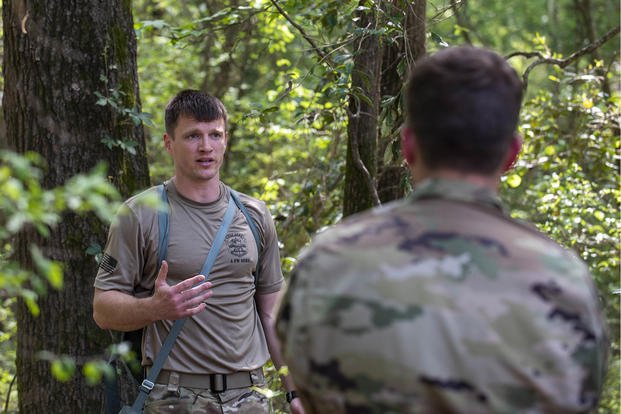Every year, the military commissions nearly 20,000 to lead and manage the armed forces. Entrusted with unique authority and responsibility, officership requires character and leadership. With increased responsibility comes higher pay and other benefits. Officers must earn their commission through one of the following programs:
| Military academies:
U.S. Naval Academy (Navy and Marines) U.S. Coast Guard Academy |
Four service academies combine "Ivy League"-quality education with special training. Competition is extremely fierce to get into the academies; three require nominations.
Once accepted, cadets or midshipmen receive full benefits along with a tuition-free education. All graduates earn a bachelor's of science degree. |
| Officer Candidate School
or Officer Training School (21% of new officers) |
This program turns college graduates with no prior military training into military officers. The training lasts up to 20 weeks culminating in commission as officers. |
| Direct commission
(11% of new officers) |
Direct commission candidates are trained professionals in the medical, legal, engineering or religious fields. Due to their expertise, direct commission candidates are not required to face a full schedule of military training. |
| ROTC
(44% of officers) |
Depending on service and ROTC option selected, students train for two, three or four years. Often, they receive scholarships for tuition, books, fees, uniforms and a monthly allowance.
In addition to military and college coursework, ROTC candidates drill several hours each week and participate in military training exercises each summer. Graduating ROTC candidates are commissioned as officers and either go on active duty or become members of Reserve or National Guard units. ROTC programs for the Army, Navy, Air Force and Marine Corps are available at more than 1,400 colleges. |
Military Academy Prep Schools
The service academies also operate preparatory schools to strengthen academy candidates' education background in a crash-course military environment.
Interested in Joining the Military?
We can put you in touch with recruiters from the different military branches. Learn about the benefits of serving your country, paying for school, military career paths, and more: sign up now and hear from a recruiter near you.















